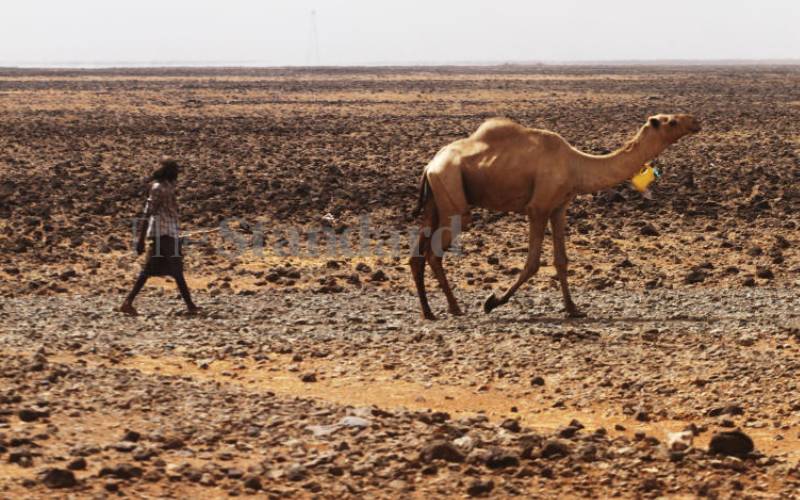
Scientists say meningitis outbreaks are prevalent during the dry season. [Elvis Ogina, Standard]
Scientists are using weather-based surveillance to predict impending meningitis outbreaks in sub-Saharan Africa.
Meningitis is a highly contagious disease that could lead to disability and death, and Kenya belongs to the Meningitis Belt that comprises 27 sub-Saharan Africa countries where it causes impairments such as brain injury or amputation.
Scientists say meningitis outbreaks are prevalent during the dry season from January to June, and episodic dust outbreaks have been linked to meningitis epidemics.
Of the 1.2 million new cases globally, says the World Health Organisation (WHO), about 135,000 die. Use of weather forecast tools in health will combat meningitis as weather data gives up to two weeks’ advanced warning of conditions likely to trigger a meningitis outbreak.
The technology is being tested by the African Centre of Meteorological Applications for Development (ACMAD) in Niger, and the African SWIFT initiative led by the University of Leeds and the National Centre for Atmospheric Science, both based in the UK.
“Meningitis is affecting more than 30,000 people over Africa each year with several thousand deaths,” says research scientist Cheikh Dione of ACMAD. “Our key findings are to operationalize the production of an early-warning system on meningitis outbreaks over the African meningitis belt,” he adds.
The project, run jointly with WHO’s regional office for Africa, is helping medics to understand how climate change is linked to meningitis outbreaks, besides enabling climate scientists to evaluate their forecasts and understand the response of health services to stop meningitis outbreaks.
Scientists are also using forecast data from the European Centre for Medium-Range Weather Forecasts from the World Meteorological Organisation and “based on a weekly mean forecast of temperature, wind, relative humidity and surface dust concentrations, we are able to map areas where meningitis cases or outbreaks are expected to occur in the coming two weeks,” says Dione who reckons the collaboration will help save live as the lead time allows medics to swing into action early.
The forecast is generated every Monday, and sent to the WHO’s regional office for Africa, which then shares the weekly report on meningitis cases and make recommendations to health services in each country in the meningitis belt.
“Being able to predict an epidemic outbreak implies that we have the possibility of better anticipating the response that includes vaccination, strengthening of diagnostic and management capacities,” Justin Bienvenu Eyong, an epidemiologist with Epicentre Africa, a research arm of Doctors Without Borders, told SciDev.Net.
Eyong added that climate and meningitis can help anticipate any future additions in the context of global warming, considering the relationship between burden to already fragile health systems on the continent.
 The Standard Group Plc is a multi-media organization with investments in media platforms spanning newspaper print
operations, television, radio broadcasting, digital and online services. The Standard Group is recognized as a
leading multi-media house in Kenya with a key influence in matters of national and international interest.
The Standard Group Plc is a multi-media organization with investments in media platforms spanning newspaper print
operations, television, radio broadcasting, digital and online services. The Standard Group is recognized as a
leading multi-media house in Kenya with a key influence in matters of national and international interest.











